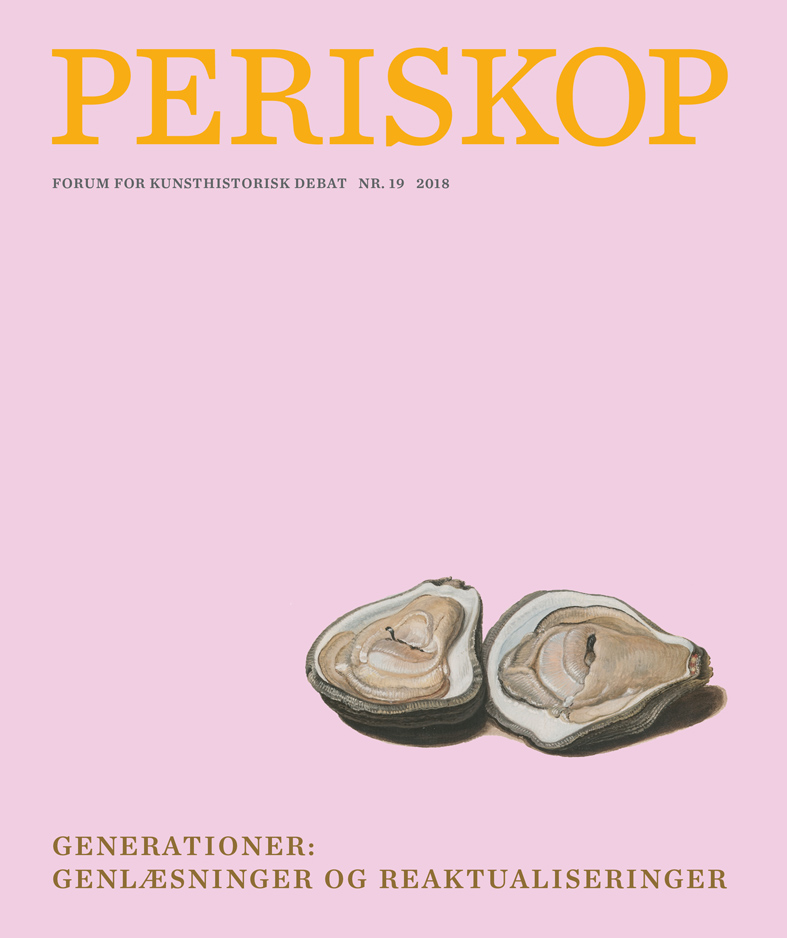Generationsbrud. Avantgardebegrebet før og efter 2. verdenskrig
DOI:
https://doi.org/10.7146/periskop.v0i19.114007Resumé
This article takes as its point of departure the notion that World War II represents a generational breach that resulted in the post-war avant-garde being on the one hand more accessible to the public, and on the other less subversive and radical. The notion of World War II as the generational and cultural cleft that separated the historical avant-garde from the ahistorical, neo-avant-garde thus also implies a complete collapse of the avant-garde as an anti-capitalist and sociopolitical project. As Peter Bürger has pointed out, this reasoning naturally invites apprehension of World War II as the single historical event that led to the final decline and failure of the avant-garde. Given Karl Marx’s theory that history always repeats itself, it is still possible from a discourse-analytical standpoint to consider the neo-avant-garde as a sort of appropriated edition of the historical one. Contrary to later post-war avant-garde theory, however, Walter Benjamin asserted as early as 1940 that every period should ideally manifest currents capable of wresting it free from obligations to historical legacy and conformity. It is nonetheless difficult, in this day and age, to locate an example of avant-garde art that realistically has the potential to wage an anti-capitalist resistance: in any event, not while such art operates under obligation to a complex of traditionally determined avant-garde legacies that are seamlessly assimilated into the canonized, art-historical discourse on generational teleology.
Downloads
Publiceret
Citation/Eksport
Nummer
Sektion
Licens
Forfattere, der publicerer deres værker via dette tidsskrift, accepterer følgende vilkår:
- Forfattere bevarer deres ophavsret og giver tidsskriftet ret til første publicering, samtidigt med at værket 12 måneder efter publiceringen er omfattet af en Creative Commons Attribution-licens, der giver andre ret til at dele værket med en anerkendelse af værkets forfatter og første publicering i nærværende tidsskrift.
- Forfattere kan indgå flere separate kontraktlige aftaler om ikke-eksklusiv distribution af tidsskriftets publicerede version af værket (f.eks. sende det til et institutionslager eller udgive det i en bog), med en anerkendelse af værkets første publicering i nærværende tidsskrift.
- Forfattere har ret til og opfordres til at publicere deres værker online (f.eks. i institutionslagre eller på deres websted) forud for og under manuskriptprocessen, da dette kan føre til produktive udvekslinger, samt tidligere og større citater fra publicerede værker (se The Effect of Open Access).


